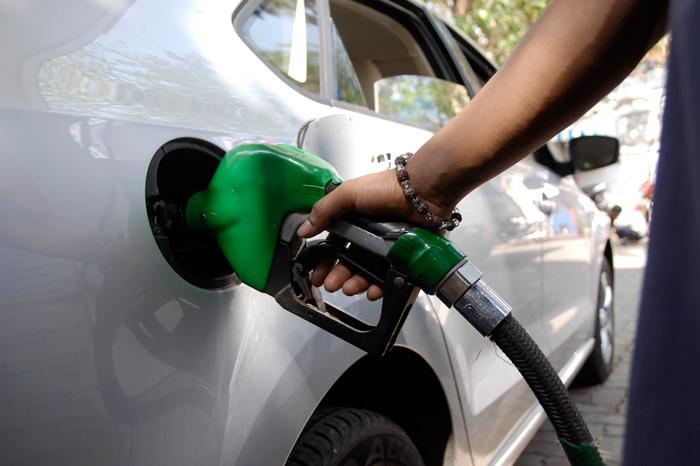With crude oil prices hovering around $80 a barrel, the landing cost of a litre of PMS otherwise known as petrol has risen to N211, e360 has learnt.
This translates to an under recovery of N66 per liter as the official pump price remains fixed at N145 a litre.
Current data available to e360 shows that the Nigerian National Petroleum Corporation (NNPC) supplied a total of 1.61 billion litres of petrol in the month of April according to its latest monthly financial operations report.
Brent crude oil traded at $79.20 a barrel by 1340 GMT Thursday as US President Donald Trump tweet slowed prices.
Trump in the tweet called on OPEC to “get prices down now!”, slowing an upward surge that has pushed the market toward four-year highs.
However, Nigeria’s continued delay at reforming it’s petroleum sector with the passage of the Petroleum Industry Bill (PIB) will continue to have devastating effects on the economy experts have said.
For instance, Nigeria’s daily crude oil production presently stands at about 1.49 million barrels per day, a huge difference from the 2.3 million barrels daily quota given the country by the Organisation of Petroleum Exporting Countries (OPEC), said oil and gas expert, Henry Adigun.
Speaking in Abuja on Wednesday at a workshop organised for journalists and social media influencers, by the Nigeria Natural Resource Charter (NNRC), Adigun said the economy is not looking good because of its connectivity to oil.
He said the amount spent subsidising petrol was unsustainable, noting that passage of the PIB which has been broken into four segments, would have efficiently eliminated subsidy payments.
Adigun said with new oil frontiers rapidly emerging on the African continent, Nigeria can no longer afford to continue operating in uncertainty. “Investors can invest in a bad, good or high risk environment because they can predict the outcome of their investment but they can’t invest in an uncertain environment as there is nothing to plan against,” Adigun said.
Speaking on the ‘Impact of Petroleum Sector Reforms on Nigeria’s Economy’, Adigun said Nigeria’s inability to reform it’s oil sector after 17 years of initiating the PIB has resulted in lost investment to neighbouring countries, reduced revenue to government, poor quality of life for Nigerians among others.
For ease of passage the PIB was broken into four segments by the 8th National Assembly namely the Petroleum Host and Impacted Community Bill (PHICB); Petroleum Industry Fiscal Bill (PIFB); Petroleum Industry Administration Bill (PIAB) and the recently vetoed Petroleum Industry Governance Bill (PIGB).
In vetoing the bill, the presidency claimed it unduly increases funds accruing to the Petroleum Regulatory Commission to the detriment of revenue that would be available to the three arms of government.
About The PIGB
The PIGB is designed to clear the current bottlenecks in the Nigeria oil and gas sector by specifically assigning roles and responsibilities, eliminate discretionary powers and enthrone a strong governance system.
The bill also proposes the unbundling of the NNPC into the NPC and National Petroleum Assets Management Commission (NPAMC). It also propose the creation a single-entity regulator called the Nigeria Petroleum Regulatory Commission (NPRC) for the oil and gas industry.
Also, under the proposed new governance structure, the NPC would be an integrated oil and gas company, operating as a fully commercial entity that will run like a private company, while the NPAMC would be a single petroleum regulatory commission, which would focus mainly on regulating the industry.






























